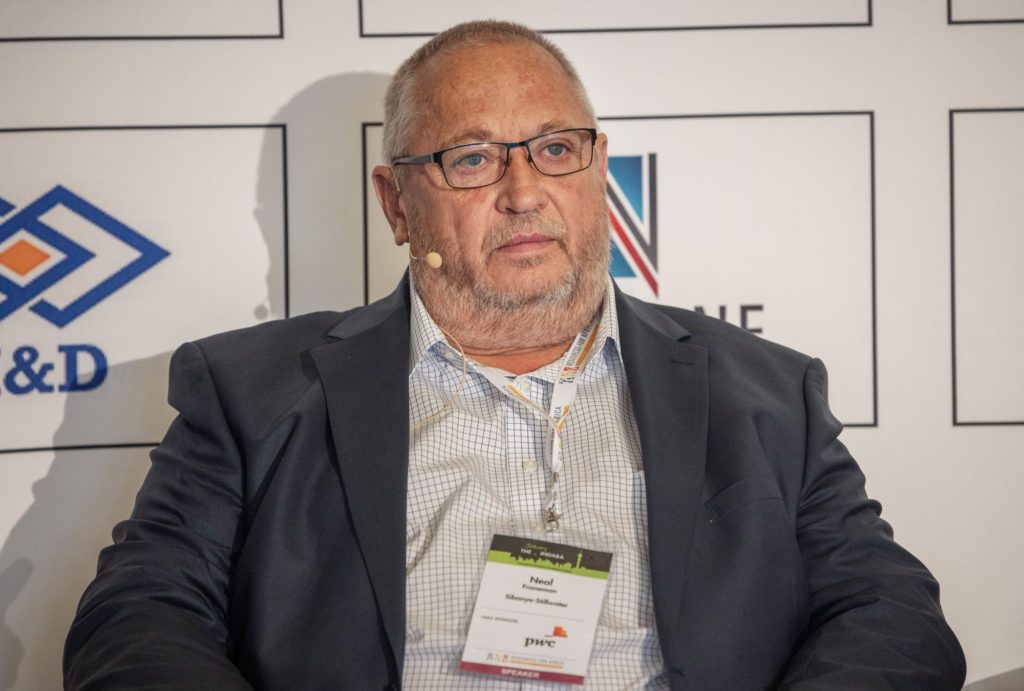Investors have lost faith in South Africa’s government and have halted investment despite a wealth of opportunities, the head of the country’s biggest employer in the crucial mining industry said.
(Bloomberg) — Investors have lost faith in South Africa’s government and have halted investment despite a wealth of opportunities, the head of the country’s biggest employer in the crucial mining industry said.
More than 200 days of power cuts last year and blackouts every day so far in 2023 have dented confidence, as has the poor performance of the state transport utility and a plethora of other problems. Pledges to enact reforms to spur the economy have come to little, said Neal Froneman, chief executive officer at Sibanye Stillwater Ltd.
“There is much more that we can invest in and the rest of South African businesses can invest in if the climate was different, if we had power, if we had clear policies and if it was more environmentally friendly,” Froneman said in an interview last week. “Business investment in South Africa is on strike until things improve.”
Corruption, crime and mixed messages from government ministers as to how quickly the country will transition to cleaner energy has also drawn criticism from a range of business leaders. Investment has been confined mainly to keeping existing businesses running rather than expanding their operations.
Mining accounted for 4% of gross domestic product in 2022, employed about 476,000 people and generated 878 billion rand ($50 billion) of exports, according to the Minerals Council South Africa, a lobby group representing most mining groups operating in the country.
Largely as a result of the problems Froneman laid out, economic growth is anemic with economists surveyed by Bloomberg forecasting expansion of 1.2% this year. Unemployment at 32.9% is among the highest across more than 80 countries tracked by Bloomberg.
“Investors are very negatively disposed toward South Africa,” Froneman said. “They’ve lost faith and they’ve lost trust in the government.”
Vincent Magwenya, spokesman for South African President Cyril Ramaphosa, referred queries to the Department of Mineral Resources and Energy.
While the department didn’t immediately respond to queries Gwede Mantashe, the mining and energy minister, acknowledged the impact that the blackouts and transport issues are having on the industry in a speech to the Investing in African Mining Indaba conference in Cape Town on Monday.
Mining companies, among the nation’s biggest electricity users, are scaling down some activities. The outages probably cut South Africa’s output for platinum-group metals by 10% in 2022 and this year production could fall by a fifth, Froneman said. South Africa accounts for about 70% of the world’s platinum output and almost 40% of all palladium, metals which are used in auto-catalysts that curb vehicle emissions.
Sibanye, which was carved out of Gold Fields Ltd. in 2013, employs about 85,000 people including those working at its U.S. operations. Since its formation Froneman has diversified the company through buying platinum, nickel and lithium operations in Zimbabwe, Europe and the U.S. Mining companies are now at risk of closing some unprofitable shafts in South Africa, which would lead to job cuts, he warned.
“Some shafts are very marginal and I think load-shedding could tip them over,” the CEO said, using local terminology for blackouts.
The challenges at national power utility, Eskom Holdings SOC Ltd., and state-owned rail and logistics company, Transnet SOC Ltd., are unlikely to be resolved soon, he said. Coal arrivals at the main export port collapsed to a 30-year low last year because of Transnet’s poor performance and have fallen even further this year, according to people familiar with the situation.
The Minerals Council in December demanded that Transnet management be removed, according to a report by News24, a South African news website, which cited a letter sent by the group to the company’s chairman. Transnet and the Minerals Council have declined to comment on the letter.
“All the trajectories are down,” Froneman said, referring to Transnet’s faltering performance “You don’t see anything turning. I completely support the Minerals Council’s approach.”
The Sibanye’s CEO’s concerns were echoed by Duncan Wanblad, the chief executive officer of Anglo American Plc, in a speech at the Mining Indaba in Cape Town. Anglo owns iron ore, platinum and diamond operations in South Africa.
“Corruption – and the crime that stems from it — are a cancer eating away at the entire economy on a horrific scale,” he said. Progress made in energy provision was so late in the day that the system had already failed,” he said.
The poor performance of the economy could cost the ruling African National Congress power in next year’s general elections if it continues to “act in the party’s interest instead of the national interest,” Froneman said.
“They engage but they are unable to implement any of the things that are necessary to change this,” he said. “They will tell us what we want to hear but I don’t believe they are sincere in making a difference.”
More stories like this are available on bloomberg.com
©2023 Bloomberg L.P.










